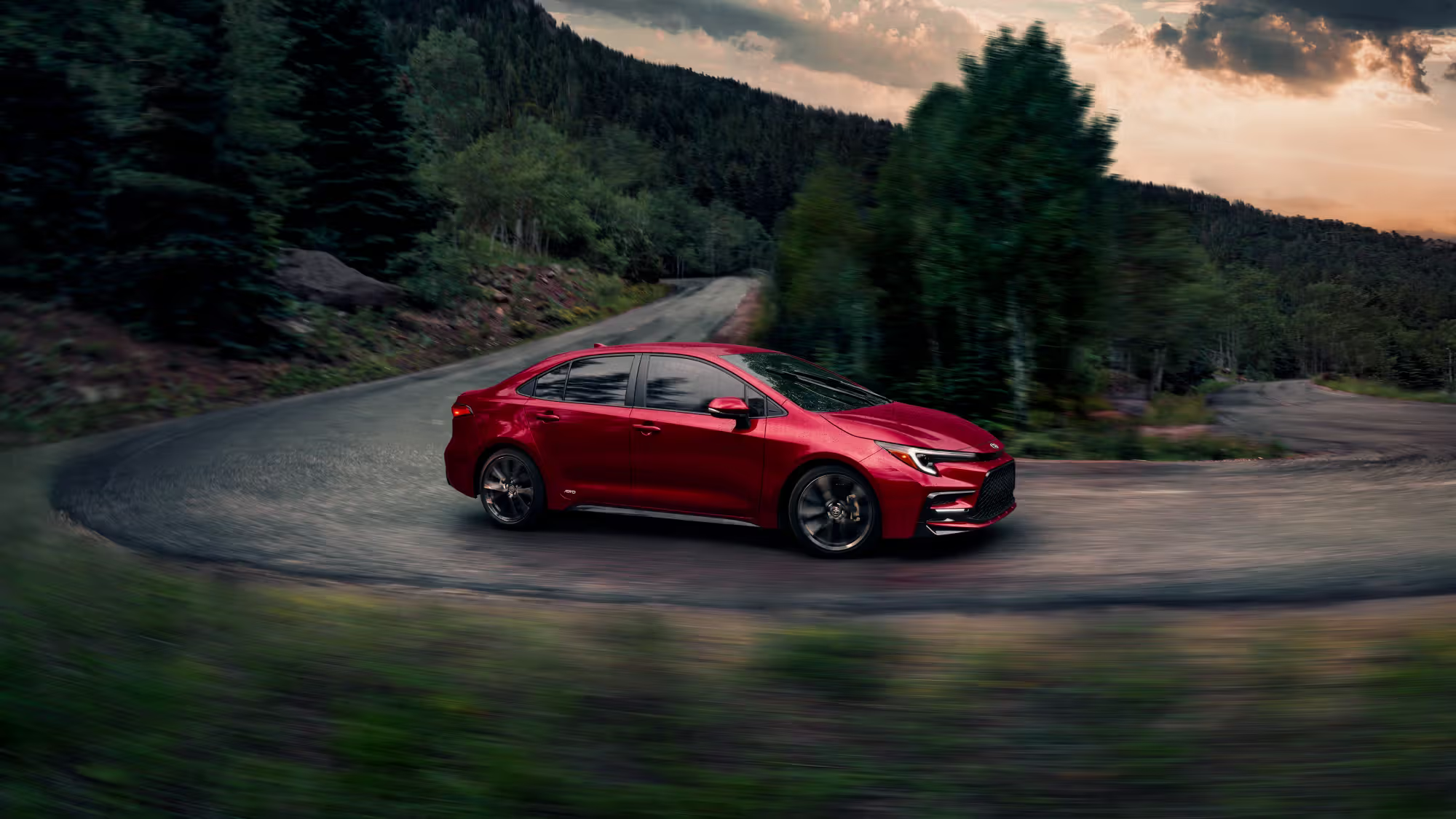Fuel-Efficient Commuter Champions: Toyota Corolla Hybrid vs. Hyundai Elantra Hybrid

In today's fuel-conscious world, choosing a car that excels in fuel efficiency is a top priority for many commuters. Two strong contenders in the compact hybrid segment are the Toyota Corolla Hybrid and the Hyundai Elantra Hybrid. Both offer impressive gas mileage, practicality, and modern features, making the decision a close call. This article delves into the key aspects of these two fuel-efficient champions to help you pick the perfect fit for your daily commute.
Fuel Efficiency: Elantra Leads, But Corolla Holds Its Own
Fuel economy is undoubtedly the most crucial factor for a commuter car. The Hyundai Elantra Hybrid boasts an EPA-estimated rating of 51 mpg in the city and 58 mpg on the highway, for a combined rating of 54 mpg. This makes it one of the most fuel-efficient non-plug-in hybrids on the market. The Toyota Corolla Hybrid comes in slightly lower with 52 mpg combined (43 city and 52 highway). While the Elantra edges out the Corolla in headline numbers, the difference translates to a minimal real-world impact. Both cars will save you significant money on gas compared to a traditional gasoline-powered car.
All-Wheel Drive: An Advantage for Corolla
For those living in areas with challenging weather conditions, all-wheel drive (AWD) provides crucial safety and handling benefits. The Toyota Corolla Hybrid offers AWD as an option, making it a more versatile choice for drivers who encounter snow or slippery roads. The Hyundai Elantra Hybrid is currently only available with front-wheel drive (FWD).

Performance and Handling: A Tie
Neither car is known for thrilling acceleration, but both offer a smooth and comfortable ride. They are well-suited for city driving and highway cruising. The Corolla Hybrid has a slight edge in horsepower (139 vs. 139 for the Elantra Hybrid Limited and 143 for the Elantra Hybrid Blue). However, in everyday driving, this difference is barely noticeable. Both cars prioritize fuel efficiency over sporty performance.
Interior Design and Technology:
The interiors of both the Corolla Hybrid and Elantra Hybrid offer a modern and comfortable environment. The Elantra boasts a more upscale design with available features like a panoramic sunroof and leather seating. The Corolla Hybrid prioritizes practicality and functionality with a user-friendly layout and ample cargo space (13.1 cubic feet compared to Elantra's 14.2 cubic feet).
Technology-wise, both cars offer a good selection of standard features, including infotainment systems with Apple CarPlay and Android Auto compatibility. The Elantra Hybrid might have a slight edge with its available digital gauge cluster and wireless phone charging.
Reliability and Safety:
Toyota has a long-standing reputation for reliability, and the Corolla Hybrid is no exception. It's expected to require minimal maintenance and hold its value well over time. The Elantra Hybrid is catching up in terms of reliability, but Toyota still holds the edge.

Both cars achieve high safety ratings from the National Highway Traffic Safety Administration (NHTSA) and the Insurance Institute for Highway Safety (IIHS). They come equipped with a comprehensive suite of airbags and driver-assistance features like automatic emergency braking and lane departure warning.
Warranty and Ownership Costs:
Hyundai offers a lengthier warranty than Toyota. The Elantra Hybrid comes with a 10-year/100,000-mile powertrain warranty and a 5-year/60,000-mile comprehensive warranty. Toyota offers a 5-year/60,000-mile powertrain warranty and a 3-year/36,000-mile comprehensive warranty. However, Toyota hybrids are known for having lower battery replacement costs in the long run, which can offset the shorter warranty period.
The Verdict: A Close Call Based on Your Needs
Both the Toyota Corolla Hybrid and Hyundai Elantra Hybrid are excellent choices for fuel-efficient commuting. Here's a quick breakdown to help you decide:
- Choose the Elantra Hybrid for: Superior fuel economy, upscale interior options, and a longer warranty.
- Choose the Corolla Hybrid for: All-wheel drive availability, legendary Toyota reliability, and potentially lower long-term battery replacement costs.
Ultimately, the best choice depends on your individual priorities. If maximizing fuel efficiency is your top concern, the Elantra Hybrid takes the lead. If you value all-wheel drive capability, Toyota's offering is the clear winner. Consider factors like warranty coverage, interior design preferences, and long-term ownership costs when making your final decision. Whichever car you choose, you're guaranteed a reliable and fuel-efficient companion for your daily commute.
